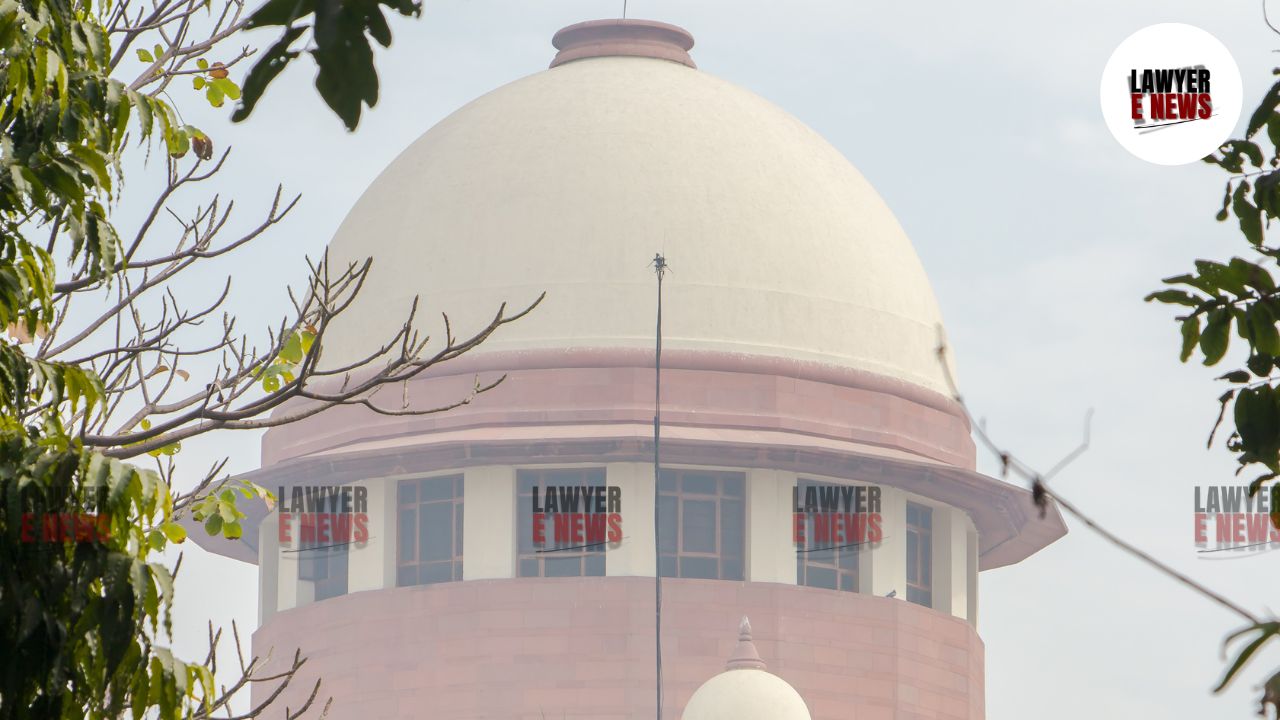-
by Admin
15 February 2026 5:35 AM



Supreme Court Declares Auction Sale Under SARFAESI Act Absolute; Borrower and Transferee Directed to Handover Possession, upheld the validity of an auction sale conducted under the SARFAESI Act, 2002, and declared the subsequent transfer of the secured asset by the borrower during pending litigation void under the doctrine of lis pendens. The Court found the borrower and the subsequent transferee guilty of contempt for obstructing the implementation of its earlier judgment, directing immediate compliance with orders regarding the possession of the secured property and nullification of void transactions.
The case arose out of a loan default by the borrower, Mr. Sumati Prasad Bafna, who had availed credit facilities from Union Bank of India, secured by mortgaging immovable property in Navi Mumbai. Upon default, the borrower’s account was declared a Non-Performing Asset (NPA), and recovery proceedings were initiated under the SARFAESI Act. Despite eight failed auctions, the ninth auction, held in June 2023, successfully sold the property to Celir LLP, the highest bidder.
However, before the sale certificate could be issued, the borrower approached the High Court, offering to redeem the mortgage. The High Court erroneously allowed redemption, permitting the borrower to transfer the property to Greenscape IT Park LLP, a subsequent transferee. This order was challenged before the Supreme Court, which, in September 2023, set aside the High Court’s decision and directed the issuance of the sale certificate to Celir LLP.
The borrower argued that the mortgage could be redeemed even after the auction notice was issued. However, the Supreme Court rejected this, affirming that the right of redemption is extinguished upon the issuance of the auction notice under Section 13(8). It observed:
“The borrower’s right of redemption ceases upon the issuance of the auction notice. After the sale is confirmed, the borrower cannot claim redemption rights or undo the auction.”
The borrower transferred the property to Greenscape IT Park LLP during the pendency of litigation in the Supreme Court. The Court held that the transfer was void under Section 52 of the Transfer of Property Act, stating:
“The doctrine of lis pendens bars alienation of a suit property during pending litigation. Even in the absence of a registered notice of pendency, such transfers are void if they undermine the judicial process.”
The Court also emphasized that the transferee had knowledge of the pending litigation, nullifying any claims of bona fide purchase.
The borrower and transferee were found guilty of willful disobedience of the Supreme Court’s September 2023 judgment, which had confirmed the sale in favor of Celir LLP. The Court stated:
“Any attempt to frustrate or circumvent a judicial decision, even in the absence of a specific prohibitory direction, amounts to contempt of court. The respondents’ conduct undermines the authority of this Court and the rule of law.”
The Court held that the ninth auction was conducted in compliance with the procedural requirements under the SARFAESI Act and was free from fraud or collusion. It stated:
“Once a sale is confirmed, the auction purchaser’s rights become absolute. The sale cannot be set aside except on grounds of fraud, collusion, or procedural irregularities going to the root of the sale.”
The Court noted that minor procedural deviations, such as a shorter notice period under the SARFAESI Rules, did not vitiate the auction.
Rejecting the transferee’s claim of bona fide purchase, the Court clarified that knowledge of pending litigation renders the doctrine of lis pendens applicable even if the statutory requirement of registering a notice of pendency was not met. It observed:
“The doctrine of lis pendens is based on principles of public policy and equity. A third-party purchaser cannot claim immunity from its application, especially when aware of the pending litigation.”
The Court invoked Article 129 of the Constitution and Section 2(b) of the Contempt of Courts Act, 1971, to hold the respondents in contempt for obstructing the execution of its earlier judgment. It stated:
“Contempt jurisdiction exists to uphold the majesty of law. Even without a specific prohibitory order, conduct aimed at frustrating the Court’s decision constitutes contempt.”
The Supreme Court issued the following binding directions:
Cancellation of Void Transactions: The borrower and bank must cancel the release deed dated August 28, 2023, and the assignment agreement with Greenscape IT Park LLP.
Handover of Possession: The transferee must hand over peaceful possession and original title deeds of the property to the bank within one week.
Refund of Redemption Amount: The bank must refund the redemption amount paid by the borrower only after compliance with the above directions.
Police Assistance for Enforcement: If the borrower or transferee obstructs compliance, the bank is authorized to seek police assistance.
The Supreme Court’s judgment underscores the finality of auction sales conducted under the SARFAESI Act, barring interference except on exceptional grounds like fraud or procedural irregularities. It also reinforces the doctrine of lis pendens as a safeguard for judicial proceedings and affirms that contempt jurisdiction extends to conduct that frustrates the implementation of a court’s decision.
Date of Decision: December 13, 2024
